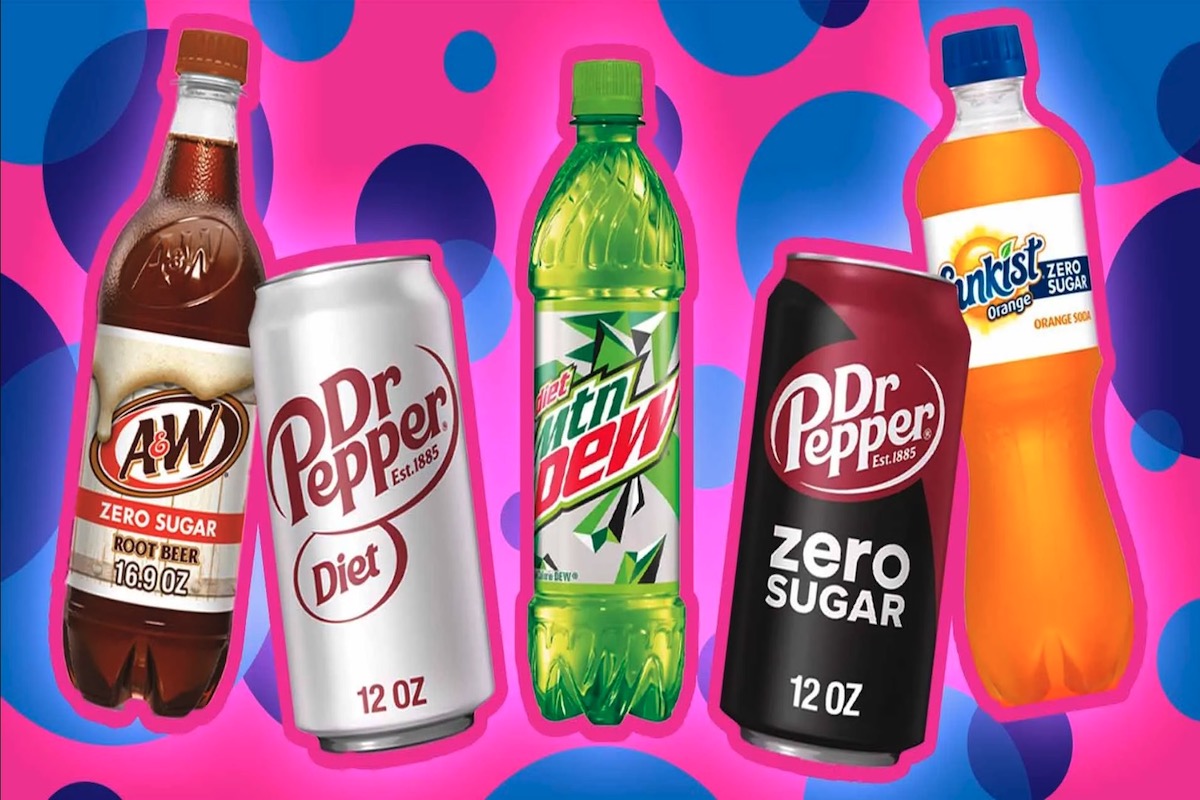#29 Diet Soda
Diet soda has gained popularity as a beverage option for individuals seeking a low or zero-calorie alternative to regular soda. These drinks are marketed as a way to enjoy the refreshing taste of soda without the added calories and sugar. However, it’s important to understand that while diet sodas may be calorie-free or low in calories, they still come with potential considerations.

One concern associated with diet soda is the use of artificial sweeteners to provide the desired sweetness without the added calories. Commonly used artificial sweeteners include aspartame, sucralose, and stevia. While these sweeteners are deemed safe for consumption by regulatory authorities, some studies suggest potential negative effects. These effects may include increased cravings for sweet foods, altered appetite regulation, and disruption of gut bacteria. It’s worth noting that the research on the long-term effects of artificial sweeteners is still evolving, and more studies are needed to fully understand their impact on health.
Another aspect to consider is the potential association between diet soda consumption and certain health conditions. While the direct link is not fully established, some observational studies have suggested an association between diet soda consumption and an increased risk of conditions like obesity, metabolic syndrome, and cardiovascular diseases. However, it’s important to note that these studies do not establish causation, and other factors, such as overall dietary patterns and lifestyle choices, may also contribute to these associations.

